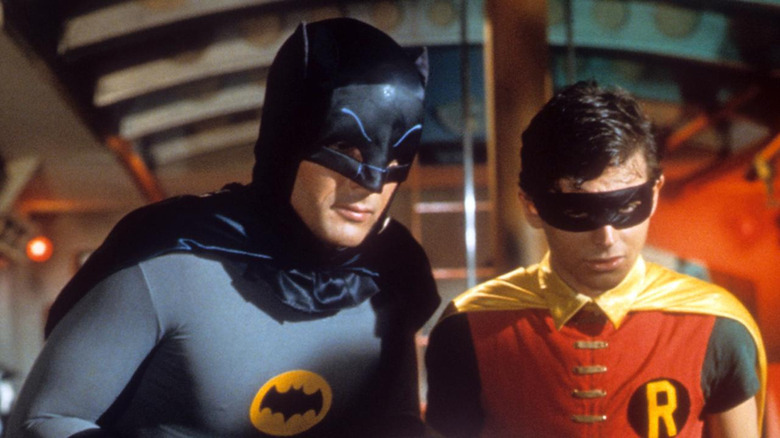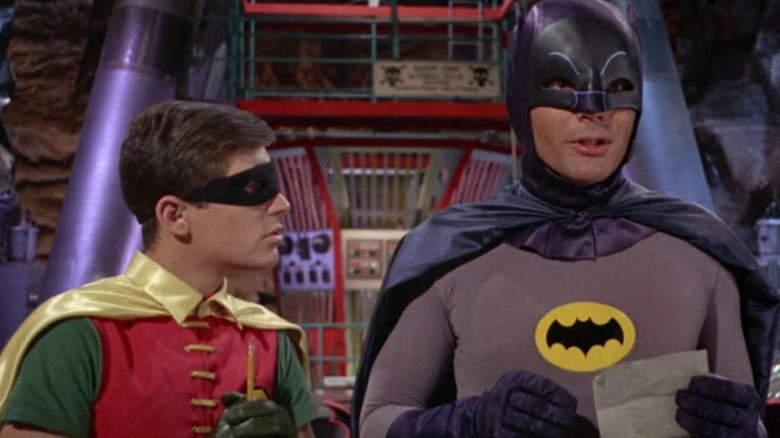How Adam West Differentiated Between Playing Batman And Bruce Wayne
The secret to the success of William Dozier's 1966 TV series "Batman" may be in its casting.
In the lead roles, Adam West and Burt Ward gave sublime performances as Batman and Robin, somehow fitting perfectly into the colorful, chintzy universe of Gotham City, but somehow communicating through their po-faced earnestness that this was all a comedy. Because of West and Ward, audiences could choose whether or not they wanted to laugh with or laugh at Batman and Robin. The dynamic duo was so square and well-behaved, they became parodies of all-American decency, hence transforming "Batman" into something deliberately subversive. The heroes supported the police, drank milk, and waited for lights to turn green before driving. It was the villains who had all the fun.
Adding to the parodic element of "Batman," it appeared that Batman and Bruce Wayne were nearly identical in demeanor and behavior. West clearly had a more stern "Batman voice," while Bruce Wayne affected a more laid-back, bedroom vocal, but in terms of their behavior and attitude, the two were very, very similar. Audiences of all ages caught onto "Batman" very quickly, and the show was an immediate hit. So much so, that a feature film was rushed into production and released in theaters only seven months after the show's debut. West's and Ward's names became known the country over, and Batman became more popular than he ever was.
In 1966, in an interview with the Los Angeles Times, West was asked what he consciously did to separate the superhero from the celebrity playboy. It seems West had a well-thought-out process.
Childhood memories
It's worth remembering that Batman was already 27 years old when Dozier's TV show was brought to air. There had already been many, many Batman characters and stories released into the pop consciousness, as well as a pair of theatrical serials put out by Columbia in the early 1940s. West was nine years old when Batman first appeared in comics and was just the right age to have intense, visceral memories of the character. In talking to the Times, West said he tapped into those memories. This was different from his emotional approach to Bruce Wayne, who he felt had to be more of a real-life kind man. In his words:
"When I got the part, I tried to remember Batman as I knew him when I was a kid — with emotional recall. [...] We're trying to create a folk hero ... when you play a legend, you have to play it with a straight direct line, direct speech, and movement ... Now Bruce, on the other hand, has to come across as the kindest, noblest, most charitable guy — again, 'straight-line' — not Cary Grant charming — know what I mean?"
Indeed. Cary Grant was charming but typically played dazzling, aloof rich characters. He was fascinating to watch, but one may feel intimidated by Grant's good-natured, upper-crust effects. Bruce Wayne, a modern man of the 1960s, had to be more civics-minded, seeing as he was often attending charity balls and hobnobbing with Gotham City's wealthy classes. In fitting fashion, Bruce Wayne was the grounded one, and Batman was the fantasy.
That West seemed at ease in both roles speaks loudly to his talents as an actor. He and Ward didn't just put on costumes. They brought the characters to hilarious life.

